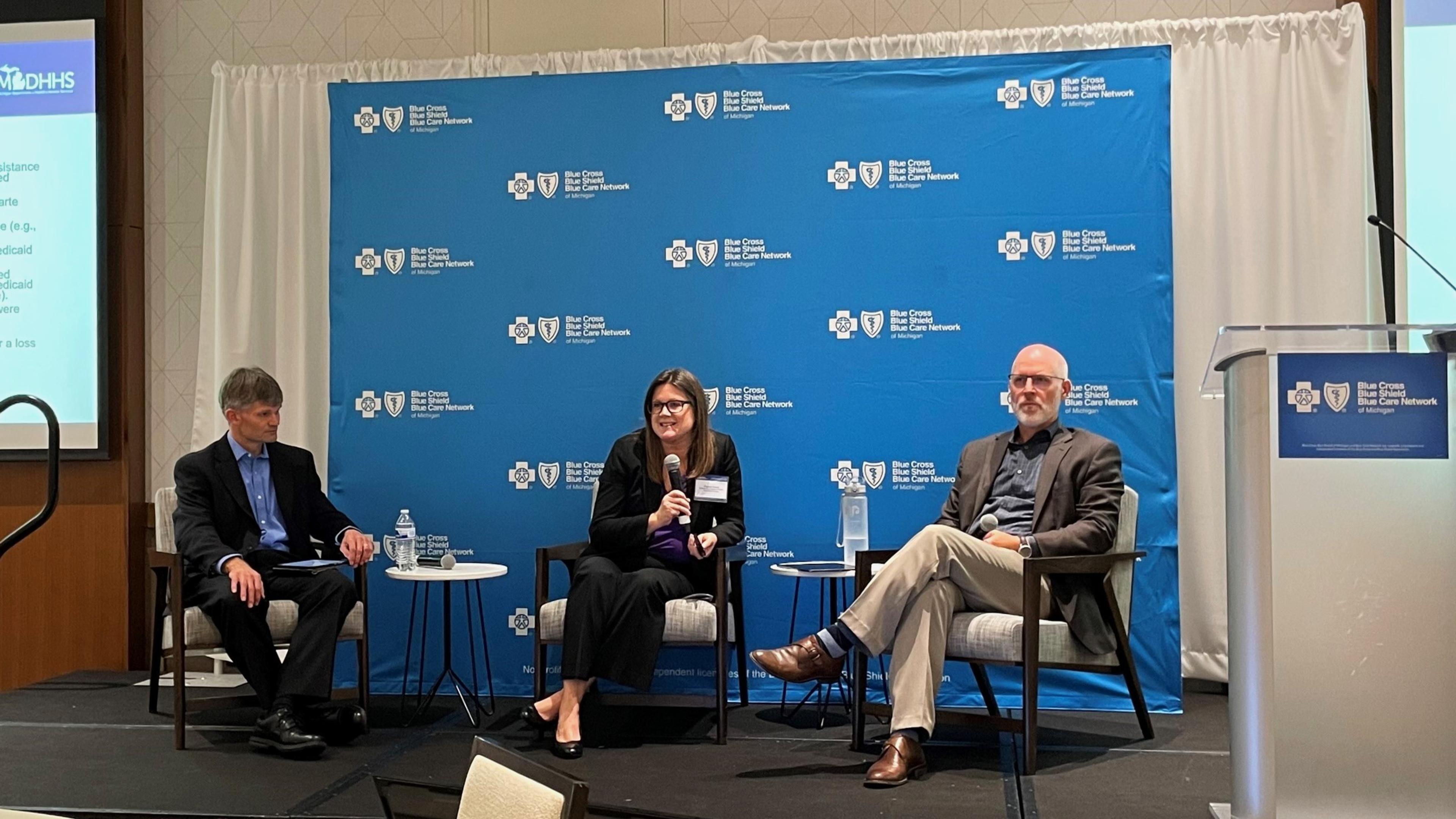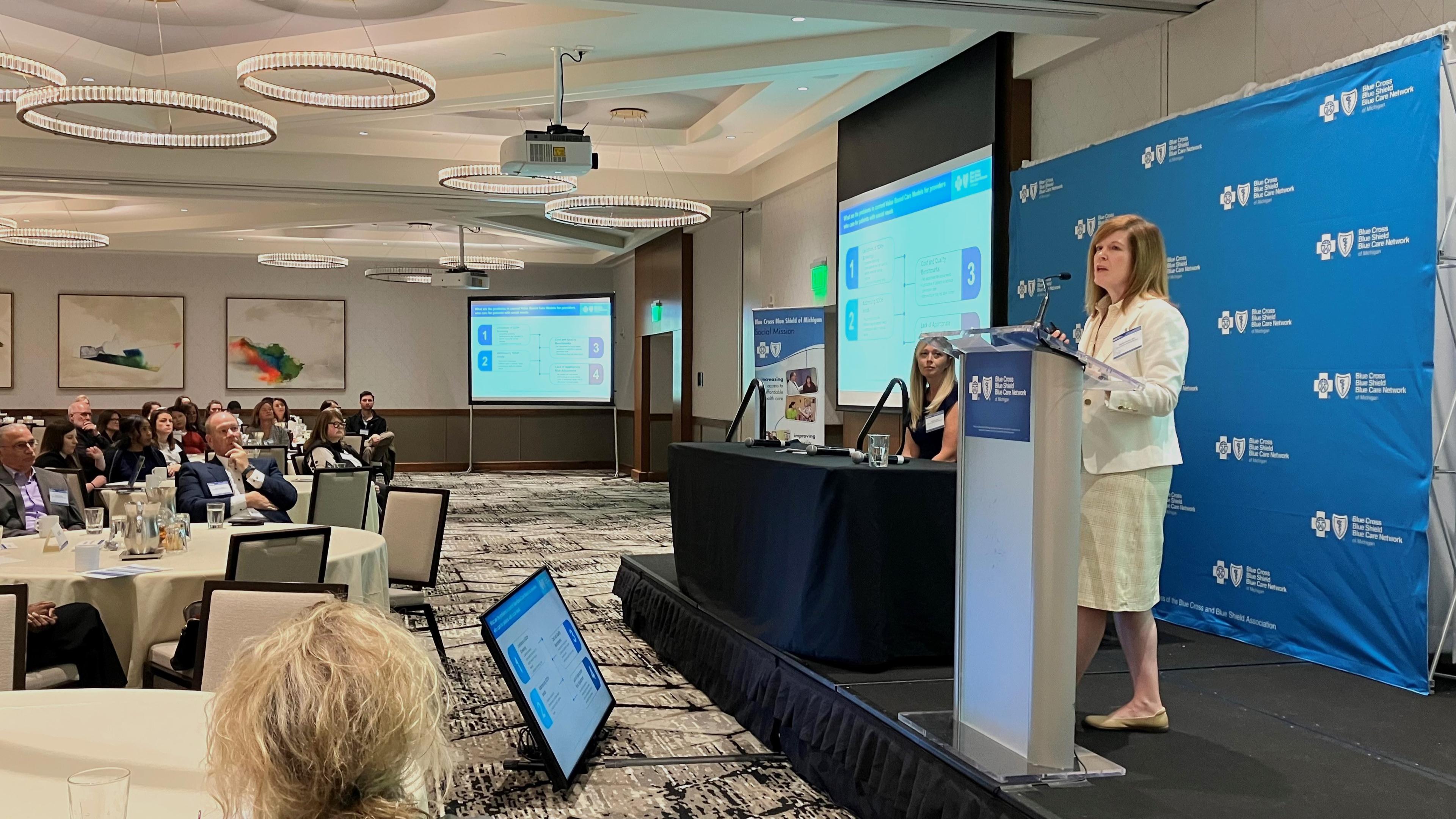Catching Patients that Fall Through the Cracks in the Health Care System
Amy Barczy
| 5 min read
Amy Barczy is a former brand journalist who authored...

Without health insurance – or without enough health insurance – getting the health care you need can often seem out of reach due to high costs. In Michigan, a network of clinics – often running on a small army of volunteer doctors, dentists and professional staff – provide free or low-cost care as a safety net.
These clinics play a vital role in the health care ecosystem, helping the most vulnerable in our communities. They mostly rely on fundraising to pay their bills, keep the lights on, doors open and shelves stocked with medical supplies.
In the Mitten state, Blue Cross Blue Shield of Michigan is the single-largest private funder of free health clinics. Since 2005, Blue Cross has awarded $19 million to health clinics through its Strengthening the Safety Net program.
“We couldn’t do what we do without Blue Cross’ help,” said Nancy Zack, executive director at Downriver Community Clinic in Wyandotte, where Blue Cross funding helps pay for women’s health exams, diagnostic testing, medications and referrals. “We couldn’t offer the services that we do, we couldn’t offer the education components for diabetes.”
At The Luke Clinic, which provides prenatal infant care to patients in Detroit and Flint, the organization can provide transportation to patients and pay for lab work for patients without insurance. The clinic has also been able to hire a community health nurse, as well as a mobile clinic to see patients in their homes.
“Blue Cross does a phenomenal job connecting us (safety net clinics) with one another so we’re not wasting time doing the same thing in different ways. We can come together and work together,” said Penny Armbruster, executive director of The Luke Clinic.
Collaborating on public health
This October more than 250 public health professionals and safety net clinics gathered at the Blue Cross Healthy Safety Net 2023 symposium in Lansing to do just that.

The theme this year was “Managing Change. Keeping it Real,” a nod to the current Medicaid redetermination process that affects many of the patients that receive care at these clinics. For the first time since the pandemic began, people who are enrolled in Medicaid plans are being re-evaluated to see if they are still eligible for benefits – which requires them to complete a renewal packet on a deadline. Many public health experts anticipate the change will cause some individuals to lose coverage.
Speaking at the symposium, Meghan Groen, senior deputy director of Behavioral and Physical Health and Aging Services Administration at the Michigan Department of Health and Human Services called on the safety net clinics for help reaching patients on Medicaid to ensure they file their paperwork on time.
“I need people to really work with beneficiaries and make sure that if they do get a packet that they’re filling that out and returning it, regardless of when it comes, even if it comes past that month or three months. We can enroll people any time in Medicaid,” Groen said, calling on clinics to give the state feedback to improve the program. “Talk to us – be really specific on what you need.”

For safety net clinics, funding from Blue Cross often supports the salaries of front desk staff at clinics who are doing the vital work of making sure patients are up-to-date with their paperwork – including their Medicaid renewals.
“The Blue Cross Blue Shield grant provided operational salary for our front desk person who has helped with redetermination, who has greeted people on the phone saying, ‘Please, check with Medicaid,’ and scheduling more patients,” said Nancy Harmon, dental director at Malta Dental and Medical Clinic in Detroit. “They’ve been a great support to us at times of tremendous need.”
Casting a bigger net
For many of Michigan’s safety net clinics, funding from Blue Cross helps them extend their operations in order to reach more patients.
At some clinics, that translates into expanded services with programs, like mental health:
“At our clinic, we often see people that otherwise wouldn’t receive care, that fall through the cracks of our health care system,” said Tom Haeussler, advancement director at Exalta Health in Grand Rapids, explaining that grants from Blue Cross help them expand. “It’s a gift to offer mental health services alongside our integrated care model. Really caring for the whole person and meeting them where they’re at – and having a bilingual, bicultural staff – it’s so important to have that funding to reach populations that otherwise would not be reached and would not seek health care.”
For Street Outreach Teams, which works with homeless individuals in Detroit, funding from Blue Cross helps volunteers provide direct medical care on the street, as well as connections to more specialized care, said Kate Crombez, team lead with Street Outreach Teams. And at St. Peter’s Free Clinic in Hillsdale County, grant funding from Blue Cross allows staff to be patient-forward instead of concentrating on fundraising to pay for critical supplies.
“All of our nursing staff and doctors are giving up their time, but medications are one of the things that we have to spend money on,” said Cordelia Tomasino, volunteer coordinator at St. Peter’s. “We have someone in our corner to help those that have very little resources in our community.”
For safety net clinics, the reliable support gives peace of mind.
“One of the things that has helped us is being able to have the funds when we have uninsured patients coming through the door, to help offset their care,” said Chawntele Flowers, wholistic health director at Baxter Wholistic Health Center in Grand Rapids. “I’ve grown up knowing that Blue Cross Blue Shield supports healthy communities all the way around – it’s nice to know that they’re still committed to the health of Michiganders.”
Main image photo credit: Getty Images





